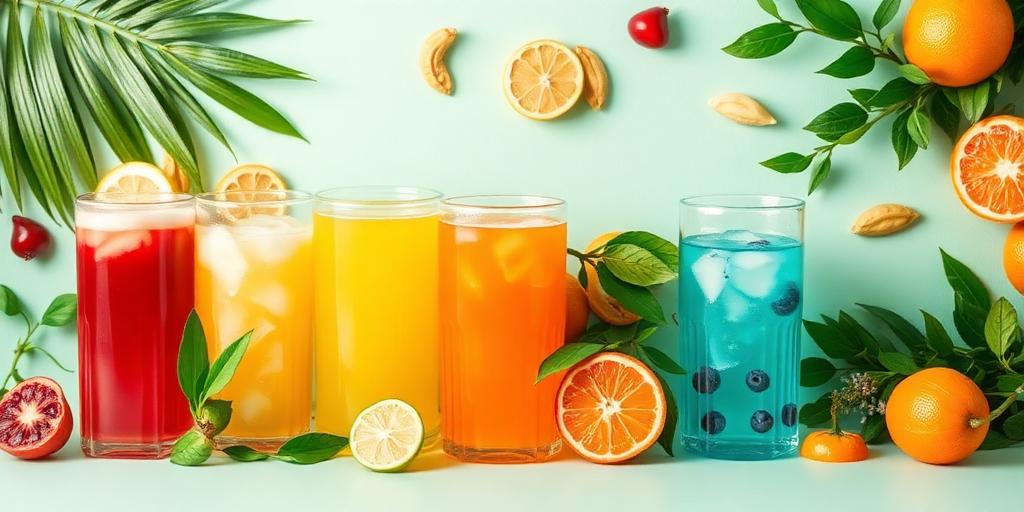The functional beverage market is experiencing a significant surge, driven by increasing consumer interest in health and wellness. These beverages, which offer benefits beyond basic hydration, are becoming a staple in the daily routines of health-conscious individuals. This article explores the key trends, ingredients, and market drivers behind this growing phenomenon.
What are Functional Beverages?
Functional beverages are designed to provide specific health benefits, often through the inclusion of vitamins, minerals, herbs, or other bioactive compounds. Unlike traditional beverages that primarily serve to quench thirst or provide energy, functional beverages aim to enhance physical or mental performance, support immune function, or address other targeted health needs.
Key Trends in the Functional Beverage Market
Adaptogens and Nootropics: Beverages containing adaptogens like ashwagandha and rhodiola, and nootropics such as L-theanine and caffeine, are gaining popularity for their ability to improve stress response, focus, and cognitive function. These ingredients cater to consumers seeking natural ways to enhance mental clarity and manage stress.
Probiotics and Gut Health: With growing awareness of the importance of gut health, beverages containing probiotics are becoming increasingly common. These drinks aim to support a healthy gut microbiome, which is linked to improved digestion, immunity, and overall well-being.
Plant-Based Ingredients: The demand for plant-based products is extending to the beverage industry, with many functional beverages incorporating botanical extracts, fruit and vegetable juices, and other plant-derived ingredients. This trend aligns with consumer preferences for natural, sustainable, and ethically sourced products.
Low Sugar and Natural Sweeteners: As consumers become more conscious of sugar intake, there is a growing demand for low-sugar or sugar-free functional beverages. Manufacturers are increasingly using natural sweeteners like stevia, monk fruit, and erythritol to provide sweetness without the negative health effects associated with refined sugars.
Immunity-Boosting Ingredients: In light of recent global health concerns, beverages containing immunity-boosting ingredients like vitamin C, vitamin D, zinc, and elderberry are gaining traction. These drinks are marketed as a convenient way to support the immune system and protect against illness.
Market Drivers
Several factors are driving the growth of the functional beverage market:
- Increasing Health Awareness: Consumers are becoming more proactive about their health and are seeking convenient ways to incorporate health-promoting products into their daily lives.
- Aging Population: The aging population is particularly interested in functional beverages that can support healthy aging, cognitive function, and overall well-being.
- Busy Lifestyles: Modern lifestyles often leave individuals with limited time to prepare healthy meals or take supplements, making functional beverages a convenient alternative.
- Product Innovation: Ongoing research and development are leading to the discovery of new and innovative ingredients that can be incorporated into functional beverages, expanding their potential health benefits.
Conclusion
The trend towards functional beverages reflects a broader shift in consumer attitudes towards health and wellness. As individuals become more informed and proactive about their health, the demand for beverages that offer tangible health benefits is likely to continue to grow. Manufacturers who can successfully innovate and deliver products that meet these evolving consumer needs are poised to thrive in this dynamic market.









